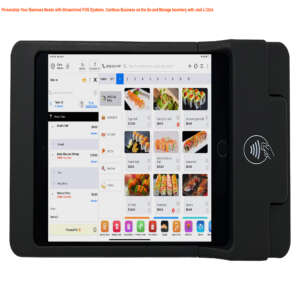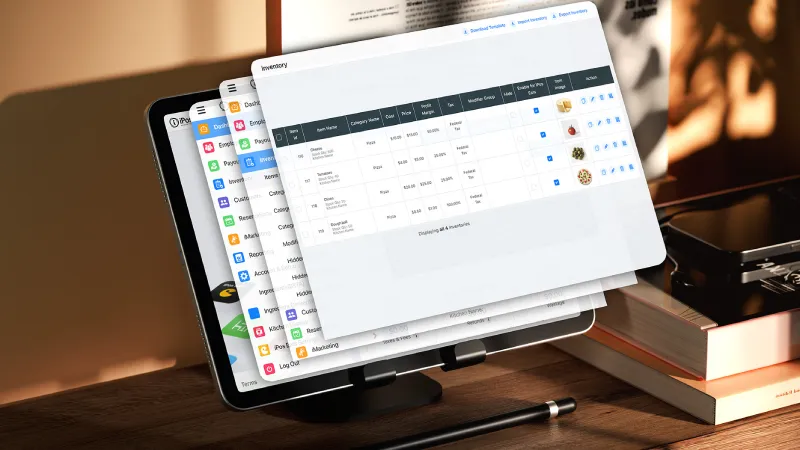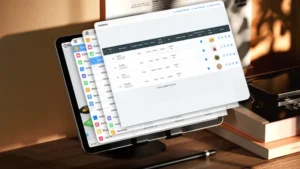Since the introduction of credit cards in the 1950s, the digital revolution has undoubtedly been one of the biggest retail disruptors. A retail POS system is an essential tool for any contemporary brick-and-mortar firm, much as the latter phenomena made a knuckle-buster (also zip-zap device) an essential component. According to a new statistic from the point-of-sale sector, the market for POS terminals is predicted to increase by 13.5 percent CAGR to approach $98.27 billion by 2022.
It makes perfect sense that perhaps a retail POS system serves as the core of it all; it’s where most of the action takes place as more businesses depend on information to make more informed business decisions and also more customers seek a personalised shopping experience. Real-time business transactions and business logic collide at this juncture.
It’s crucial for business owners and entrepreneurs to keep up with the latest technological developments in order to stay one step ahead of the competition. These five point-of-sale developments should be on your radar in the upcoming years.
Mobile & Tablet Retail POS Systems Payments
The digital push is forcing us to rethink retail while simultaneously displacing two industry mainstays: payment and cash registers. According to a Mastercard survey, 73 percent of participants said they use less cash nowadays than they would ten years ago, signalling that cash is gradually losing its dominance as the favored payment option.
Cash registers won’t cut it anymore because major technology firms including Apple, Samsung, and Google are allowing mobile banking from smartphones and giving customers a more convenient method to pay.
Expect to see an increase in the adoption of tablet-based point-of-sale (POS) systems by brick and mortar stores that can accept cash, traditional credit cards, and mobile payments. A recent ShopKeep poll revealed that 30% of small company owners want more flexibility than a conventional register.
Cloud As A POS Service
Almost all tablet retail POS systems are cloud-based, which means that the user receives the POS software, services, and data as needed from the service provider’s servers. In essence, this means that your data is stored and secured entirely by the service provider, saving you the time and effort.
Most small firms can’t afford the large cost of network infrastructure. The ideal storm has been produced by as-a-Service business models and cloud technology to slash entry-level costs for technology that, until recently, was only accessible to large organisations.
With older retail POS systems, the POS software and hardware, such as a touch-screen display, cash register, and cash drawer, have large upfront expenses. Don’t forget about the essential network gear for your POS system, such as an enterprise computer or a dedicated server. The price of value-added services like installation and training is another factor. When you know it, you’ve lost thousands of dollars without ever processing a single transaction.
The Software-as-a-Service (SaaS) business strategy has significantly decreased the cost of point of sale operations to a fraction of what it formerly was because of the potential of cloud-based options like tablet retail POS systems. A powerful iPad POS system is now available at a lower cost than its predecessor.
As a result, more cloud-based enterprise applications that are independent or link with any of your other primary business solutions, such as your retail POS systems or bookkeeping, are likely to become ubiquitous.

Data & Business Analytics
Demand also has a role in driving change, in addition to technology. Small business owners and entrepreneurs need easy access to analytics and data so they can make faster, more informed business decisions. Access to reporting was cited by 50% of respondents as a crucial element in their sustained use of their retail POS system in the identical ShopKeep small company survey.
As we previously discussed, the cloud as well as a creative business strategy helped close the gap between the kinds of data that were previously exclusively available to huge corporations and those that small firms now have at their disposal.
The most crucial business data, like sales income or transaction volume, should be captured in POS software snapshots, but it should also drill down to the precise moment when each transaction occurs. What are your busiest times so that you can staff appropriately?
What products are selling the most and which ones have been sitting on the shelf for months, preventing you from investing precious cash flow in underperforming goods?
More statistics are anticipated. Expect that the data will be easily available and digestible so that you can make comparisons and translate trends into useful tasks.
AI Driven Strategy
The main goal of this topic, artificial intelligence, or AI for short, is to collect more data. What was once thought of as science fiction or sequences from The Jetsons cartoon are now beginning to materialize.
AI is developing a superintelligence of machine learning that can carry out operations like speech recognition, language translation, email sending, and predictive text that ordinarily require human participation and intelligence.
For a long time, marketing has benefited significantly from artificial intelligence. Have you ever gotten an email from an online shop that read something like, “It appears that you left some goods in your cart.” If so, AI is actively at work in the background there.
In order to help businesses automate processes and learn about a customer’s journey using data and digital touchpoints, anticipate increased AI in business applications.
Flawless & Personalized Customer Experience
A company can more effectively tailor a customer’s buying experience the more information they have about them. In a survey of 2,200 consumers, 78.6 percent responded that personalized promotional offers are the only way they will communicate with a business.
When it comes to promotions, consumers don’t want a one-size-fits-all strategy. In fact, 63 percent of participants in the same survey expressed their extreme annoyance with brands for relentlessly promoting generic products.
You need to use a hyper-personalized marketing strategy if you want to draw in new clients and keep your present ones coming back for more. Artificial intelligence is one of the best tools available to assist in achieving this.
Building a smooth customer experience is a component of establishing a tailored buying experience. Customers anticipate a unified brand experience across all platforms and divisions of your company. You may have heard the term “omnichannel” used in connection with this experience.
If a customer wants to buy a new dress from your store but you don’t have their size in stock, what would you do? How do you behave? While the consumer is looking at them, an omnichannel merchant will make an order for the right size and ship it free of charge to the customer’s home. Consumers today are using an average of roughly six contact points to make purchases, so it’s critical that they receive the same seamless experience whether they discover you on social networks, visit your website, or visit your shop. Expect to see additional tools that follow clients more closely with enhanced analytics and reporting as customers desire a more individualized purchasing experience.
Verdict
Most businesses are finding it necessary to create a smart retail environment that provides a seamless consumer experience, and a retail POS system is a crucial component of that process. Keep these five distinct point of sale trends in consideration when selecting a retail POS system for your company as POS technology continues to advance, become more accessible, intelligent, and integrated into core business activities.







